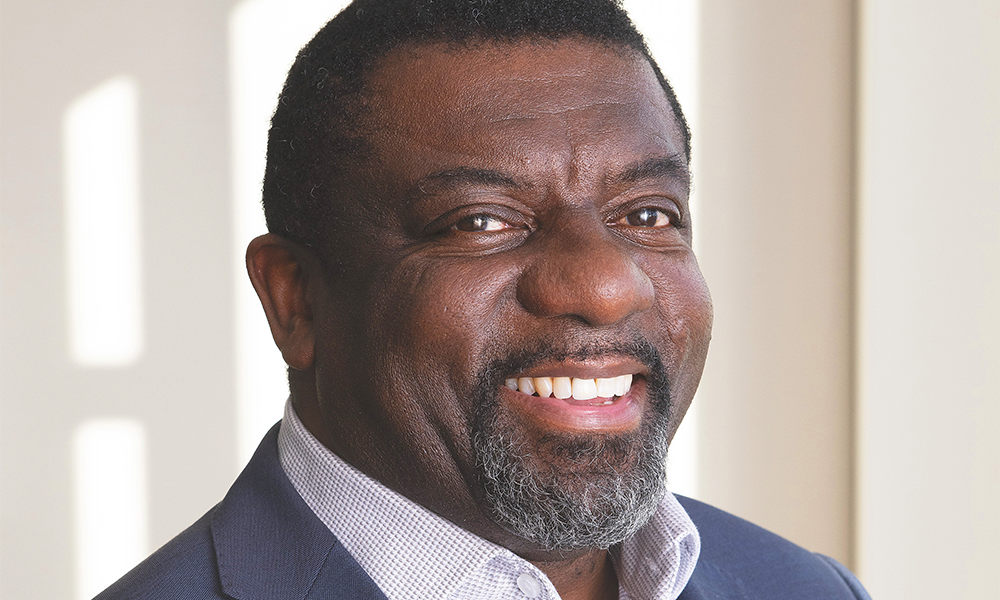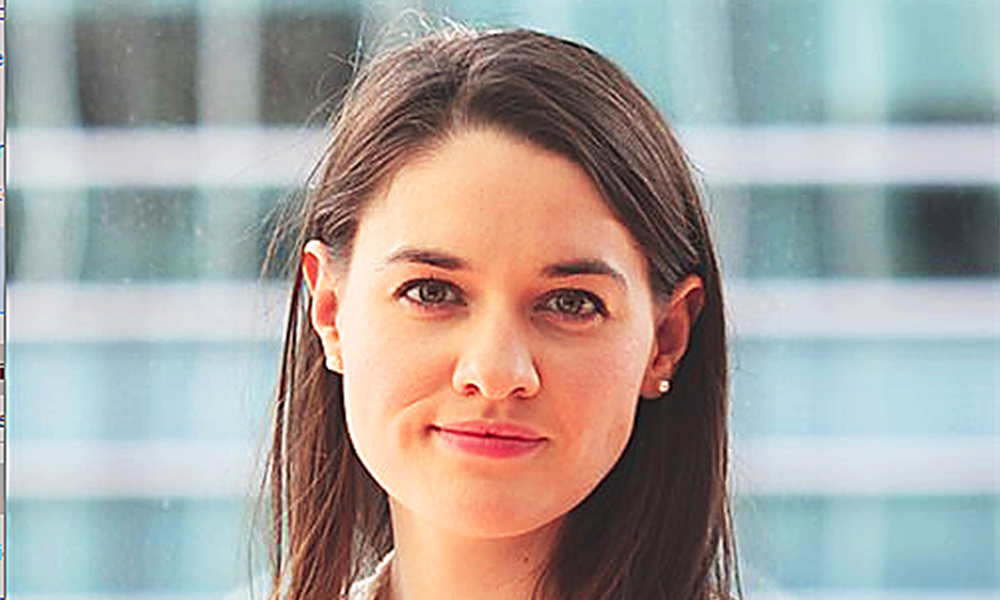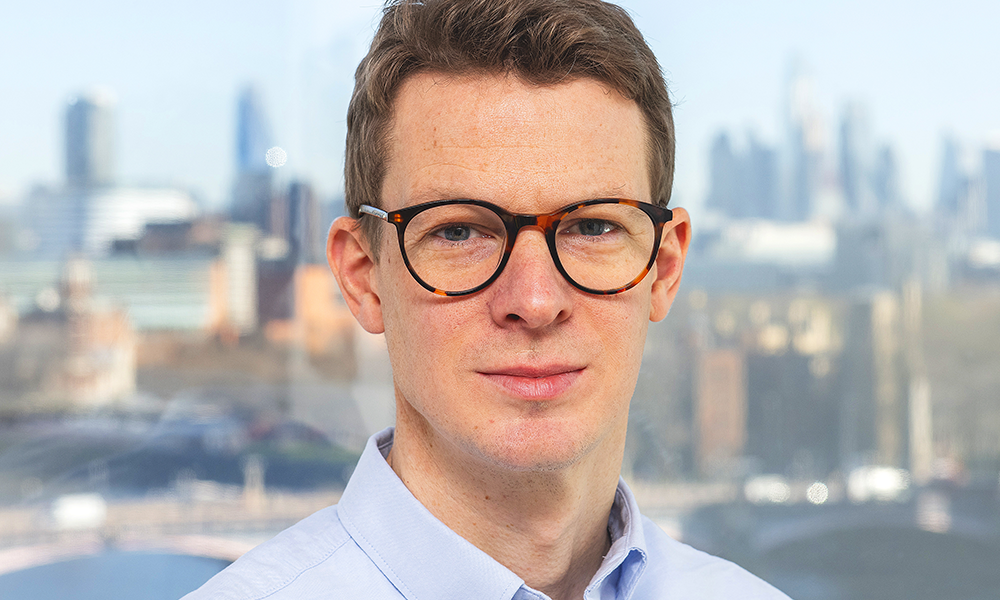Creation of £4.8million endowment fund finances Opportunity Bursaries for disadvantaged students

Subscribe to Wharf Life’s weekly newsletter here
Canary Wharf’s architecture can seem impersonal – impenetrable edifices of glass and steel, containers for businesses and institutions rather than buildings on a human scale.
But it’s important to remember those vast floorplates are populated by people – individuals with needs, desires, ideas, frustrations and aspirations.
The word ‘company’, after all, can be defined as a commercial firm, or as simply being with others.
In recent years, there’s been an increasing realisation among large organisations that it would both be wise and morally right for them to populate themselves with a much more diverse range of individuals.
The idea is that both they and wider society will benefit from the fresh ideas that brings, while the prosperity delivered by their activities will spread to communities and areas it never reached before.
Such sentiments are at the root of JP Morgan’s partnership with The Sutton Trust to offer Opportunity Bursaries to students for at least the next decade.
The scheme has seen the Canary Wharf-based investment bank donate £4.8million to the charity to create an endowment fund, managed on a pro bono basis with the growth used to fund the awards.
The first cohort of 51 students from low income backgrounds recently received awards of between £3,500 and £5,000 – cash that will be put towards facilitating a wide range of experiences and projects aimed at boosting their life skills alongside their studies and improving their long-term job prospects.
They also have the option to work with a mentor from JP Morgan as part of the scheme.
The bursaries are awarded annually to applicants in the UK with the aim of assisting 350 over the first decade.
Around 60% will go to black and minority ethnic students to reflect the additional barriers they face in society.
“We truly believe that we need to create a more inclusive and diverse community,” said Cecil Peters, head of advancing black pathways, EMEA, at JP Morgan.
“Not a lot of people from under-represented communities would think they could get to an organisation like JP Morgan, because they just don’t aspire to do the things that other people do.
“When I was 17 or 18, I never thought I could be with JP Morgan in a role like this.
“But through experiences I’ve got to learn what exists. We think it’s important to give people exposure and experiences that enable them to compete in a world where they might not have seen the opportunity or had the ability to take it.”
Without doubt, JP Morgan would be delighted if some of the recipients wound up working for the bank in future, but it’s not doing this for itself.
“Some of the students may be interested in banking and want to work in our sector, but for a lot of them it’s about how we can help them get to where they want to go in their careers and their lives,” said Jess Ferguson, head of international employee engagement and volunteering, global philanthropy, who jointly oversees the project with Cecil.
“Out of the 51 in the first cohort, there’s one doing film studies, lots of people doing law and psychology – a whole range of different disciplines. They all have varied ambitions for what they want to achieve in their lives. One wants to work in humanitarian law and we heard from someone else who wants to be the next Sir David Attenborough.”

In February 2021, the Sutton Trust launched some research into how university students needed to have essential life skills as well as their academic qualifications, recognising that those skills were really important to employers.
“It found that some students were not accessing opportunities to enable them to get those essential life skills.
“It identified a gap between individuals from affluent backgrounds and those from more socially disadvantaged, working class backgrounds in terms of things like participation in societies, work experience placements and study abroad trips.
“So, as partners with the trust, we started discussing with them how we could help address those issues.”
JP Morgan intends to finance as many bursaries as the fund’s growth allows.
“Every person you can give an opportunity to is now able to compare themselves with and compete with someone from a more affluent background, said Cecil.
“It means that when they go looking for a job they can talk about experiences they’ve had beyond their studies, that they worked with the UN or went trekking abroad to do research.
“The bursaries are also an opportunity to create a perception within each student’s community about what can be achieved, hopefully elevating the aspirations of those around them.
“If you’re the first person in your family to go to university, and you do really well, you’re going to pull other people with you. That’s what we’re trying to do.
“Without money it’s hard to access those extra experiences, tough to commit to going half way round the world to do something.
“These kids are smart – I was talking to a young woman at the launch event and she was homeless when she did her A-Levels. She got into Cambridge to do law. These people are the cream of the crop and they have had to fight to get where they are.
“The one thing they don’t have is money, so instead of giving them access to courses, for example, we wanted to give them what they’re missing to help level the playing field.
“It’s about creating equity. Everyone has different needs.
“Black and minority ethnic communities are just as under-served as poor white communities, but they also have the obstacles of racism to deal with.
“So for JP Morgan it was important for us to make sure there was space so they can get those opportunities as well.
“It’s a learning curve and a jump into the unknown for both us and The Sutton Trust. There are no measurable targets – we gave the money freely and willingly and invested it for them to make this work.
“Sometimes you have to do things that way – we give these students lived experiences, but there’s no way of knowing what the impact will be until they’ve lived them.
“The return for us is to hear their stories, not just next year, but in 10 or 15 years. We want to know where they’ve got to career-wise, because they’re just at the start.”
“I feel very proud of what we get to do, because we’re changing people’s lives for the better, and that is exciting,” added Jess.
“One of the ways we’ll stay in touch with them is through the mentoring scheme. We made it optional, but at least 34 of the 51 students have taken up the offer and we’ve had some more who have expressed an interest in it.
“It’s one-to-one matching with a volunteer from JP Morgan – some have come to us and said they’d like someone who works in cyber security or communications, for example.
“What we hope is that the mentor is able to help the young person think about their goals and ambitions for the future – what steps they may be able to take to get there.
“They can also help with things like articulating and reflecting on the skills they’ve got through the experiences funded by the bursaries and how to articulate that to future employers or to themselves. Mentors provide that impartial sounding board.
“It’s the first year, we’ll learn a lot and we will listen to the students’ feedback, but we’ve seen the benefits in our other mentoring programmes.”

THE CHALLENGE OF MOVING THE DIAL ON SOCIAL MOBILITY
Social mobility in the UK isn’t in a good place. There’s much debate about where the nation actually sits in the developed world, but we’re either vying with the USA as the least socially mobile country or squarely in the bottom half of the rankings.
“The Sutton Trust was set up 25 years ago by Sir Peter Lampi with the aim that every young person should have the same chances to get on in life no matter what school they go to or where they live,” said James Turner, the charity’s CEO.
“We work with almost 10,000 young people every year to help them get into university, onto the best apprenticeships and get jobs in some of the most competitive sectors.
“We also work to shed light on social mobility and make sure it remains at the top of the agenda, whether that’s with employers, universities, schools or the Government.
“We’ve known for a long time that barriers to social mobility don’t end at 18.
“Getting into university is a great start but poorer people may not go on to have the same success in their careers as their better-off counterparts.
“We know from employers that education is necessary but not sufficient, so we’d been thinking about ways to address that when we had the conversation with JP Morgan, an organisation that has a deep commitment to social mobility.
“The idea was that we would use these bursaries to support students to do extra things – taking part in clubs, societies, internships, years abroad – to help them develop their skills and confidence, so putting them in a better position in the job market.
“The applicants had to put forward a case – what they would do with the money, why it was important to their employability, their academic work and why they wouldn’t be able to do what they wanted to without it.
“We had 400 applications, which we reviewed alongside JP Morgan and we interviewed the most promising ones – it was a very difficult process to get it down to 51 because of the high quality of applicants.
“The projects students applied for were a real mix – some were about travel, some for training courses, to boost their skills, and others looking to become social entrepreneurs in the UK.
“We really hope this first group will come back and talk to the next cohort to help shape future applications.
“As a project this is the first time we’ve been able to give bursaries like this and it really moves on what we’re doing in a substantial way because of the varied activities they are funding.”
CASE STUDY: HEATHER FERGUSON
In every respect, this is the most important part of this article.
Heather Ferguson – no relation to Jess – is one of the 51 successful applicants for a bursary.
She is 19 and from the small town of Wigton in Cumbria, just north of the Lake District and is currently studying psychology at Durham University.
A qualified gymnastics coach, she recently coached children at a summer school at the university. This is what the money means to her.
“I want to be a researcher – my interest is to explore how we can make children happier in schools via their physical wellbeing, as a way of improving their mental health,” said Heather.
“I didn’t have the best time in primary school, so, instead of feeling sorry for myself, I wondered what I could do to fix the problem.
“Of course, it wasn’t just me that experienced that – a lot of children go through a lot worse.
“But a school is meant to be a safe place. Children spend five, six or even seven hours a day, five days a week there and I feel we have this time where we can really make a difference and shape their lives.
“I’m a young carer myself. When I was at home, I’d have to look after my disabled mother and that’s still the case now.
“When we have kids in school, we have time to help them and make a difference.
“Physical activity is a lot more than just becoming the next Usain Bolt or Jessica Ennis – it’s more about keeping ourselves active and how we can introduce children to different types of physical activity in a fun way that will also improve their mental and physical health.
“In 2018 I applied for The Sutton Trust summer school, which they offer each year, and I got onto that and went to Durham University for a week.
“That’s how I wound up studying there.
“I was in the trust’s alumni network and that’s how I heard about the Opportunity Bursary. At the time, I’d just applied for the MITACS Globalink Research Internship.
“It’s a competitive research post in Canada, and they run it each year, and they take high-achieving undergraduates.
“It’s a great experience to get onto, but I realised that if I did, I would need a little money to support me and to buy a suitcase and things like that.
“So I applied for the bursary to cover things like travel costs, was selected for interview and got accepted.
“Going for the internship was already a great experience because you had to write a CV and an application, which will be very helpful when I apply for a masters and a PhD.
“I’ve been matched with Dalhousie University in Halifax, Nova Scotia, which is a U15 university – a bit like the Russell Group in the UK.
“I’ll be looking at how children regulate their positive and negative emotions, a perfect project for me, working for three months over the summer.
“I can see from chats I’ve already had with the professor there that there will be other opportunities opening up too including the chance to work alongside a PhD student.
“It’s an opportunity to develop so many research skills along the way.
“I’m just so grateful to have been awarded this bursary and to the Sutton Trust for helping me get into Durham.
“I wouldn’t be able to go to Canada without it. If there is an emergency with my mum, I might have to go home and I don’t have money lying around for a plane ticket.
“This takes the worry out of that – it provides me with the extra security I need to go there and take part.
“I come from a low income background, my siblings and I were on free school meals for a time.
“I’m not looking to be in a job where I just make as much money as possible – I’ve always thought that if you have a roof over your head and you can have the odd holiday here and there, then that’s enough.
“I want to be in a job that makes a difference. Research is the area that will do that for me, helping children in schools. That will pay me more than money ever could.”
Read more: How Brookfield Properties Craft Award boosts creativity




3 Replies to “Canary Wharf: How JP Morgan and The Sutton Trust boost social mobility”
Comments are closed.